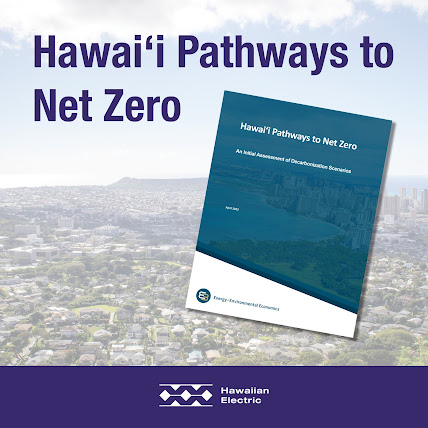 |
| Kenneth Makuakane, the songwriter and musician will entertain at the Hawai'i Volcanoes National Park's 39th Annual Cultural Festival, tomorrow, Saturday, along with Da Kahuku Mauka Boyz with Russel Mauga; The Kīpapa Sisters; Keaīwa; Hālau o Leionalani and LoriLei’s Hula Studio. Photo from PBS. See https://www.youtube.com/watch?v=j9XZa_KAaXY |
THE 39TH ANNUAL CULTURAL FESTIVAL FOR HAWAI'I VOLCANOES NATIONAL PARK is Saturday at Kahuku from 10 a.m. to 3 p.m. It features Hawaiian and island-inspired music, hula, Hawaiian
Activities include throwing a rope like a paniolo with Kaʻū 4H Club; learning about paniolo life at Kaʻū Multicultural Society's exhibit; learning about Hawaiian medicinal plants with Momi Subiono; creating a ti leaf lei; ulana (weaving) a lauhala keepsake with na wahine of ‘Aha Puhala o Puna; and testing skills at pa‘ani (Hawaiian games) led by park rangers.
Entertainment includes: Singer/songwriter/musician Kenneth Makuakāne; Da Kahuku Mauka Boyz with Russel Mauga; The Kīpapa Sisters; Keaīwa; Hālau o Leionalani and LoriLei’s Hula Studio.
Entrance and activities are free. Vendors include Hawaiian food truck 4 Scoops of Aloha, and the Hawaiian Civic Club of Kaʻū, which will sell lunch plates.
Entrance and activities are free. Vendors include Hawaiian food truck 4 Scoops of Aloha, and the Hawaiian Civic Club of Kaʻū, which will sell lunch plates.
The Friends of Hawaiʻi Volcanoes National Park will give away free ice shave minis and will sell the official 2023 festival T-shirt.
Participants can learn more about local conservation and sustainability efforts at exhibit tents sponsored by organizations that include Birds Not Mosquitoes, Rapid ʻŌhiʻa Death (University of Hawaiʻi Mānoa), and the Hawaiʻi Ulu Co-Op.
Participants can learn more about local conservation and sustainability efforts at exhibit tents sponsored by organizations that include Birds Not Mosquitoes, Rapid ʻŌhiʻa Death (University of Hawaiʻi Mānoa), and the Hawaiʻi Ulu Co-Op.
Park staff will lead short walks to the Kaʻū agricultural field system. This fun-filled, family-friendly day is a drug- and alcohol-free event. Sunscreen and a hat are recommended. Bring water, rain jacket, and mat or chair. Kahuku is at the 70.5 mile marker off Highway 11 in Ka‘ū.
To read comments, add your own, and like this story, see facebook.com/kaucalendar.
See latest print edition at kaucalendar.com, in the mail and on stands.
See latest print edition at kaucalendar.com, in the mail and on stands.
State law mandates a 50% reduction in greenhouse gas emissions by 2030 compared to 2005
levels and for Hawai‘i to be net-zero by 2045. With time running short to meet these targets, the
new pathways study advises that aggressive actions will need to be underway by 2030 to create
a glide path to full decarbonization that is less steep than if actions are delayed.
“This study is the first of its kind for Hawai‘i and we commissioned it to understand the scale of
decarbonization required in every sector of our economy and the scope of work needed to be
successful over the next two decades,” said Shelee Kimura, president and CEO of Hawaiian
Electric.
“We want to ensure we deliver on our part in this interdependent effort for our state. Renewable
energy is required but that alone doesn’t get Hawai‘i to the finish line. The study confirms that
success requires contributions from every individual and every industry. We’ve made a lot of
progress already by working together and we offer this report to policymakers, researchers,
planners, businesses, organizations and individuals as a conversation starter and as a resource
for creating action plans across all sectors of our economy.”
Using data collected from the five islands served by Hawaiian Electric, the analysis charts the
sources of emissions tracked by the state’s greenhouse gas inventory, including electricity,
aviation, vehicles, industry, buildings, agriculture and waste. Electricity generation accounts for
27% of emissions. Transportation generates 48% of emissions, including aviation, ground,
marine and military uses, compared to 28% for the rest of the U.S., highlighting one of the
unique challenges to decarbonizing the island economy.
The study finds that energy efficiency and reducing the demand for energy are “crucial” in
achieving short- and medium-term emission reductions and reducing the amount of land that will
be needed for future renewable energy projects. Hawaiian Electric worked with Energy and Environmental Economics (E3), a nationally
recognized consulting firm that has conducted similar studies for the California Energy
Commission, the U.S. Climate Alliance and many utilities and government agencies. Hawai‘i
Pathways to Net Zero – an Initial Assessment of Decarbonization Scenarios builds on Hawaiian
Electric’s Climate Change Action Plan, which commits to reducing greenhouse gas emissions
from its operations 70% by 2030 compared with 2005 levels.
According to Hawaiian Electric, the study isn’t intended to suggest approaches to achieving net zero but explores what might
be needed in terms of energy infrastructure, technology adoption and supportive public policies.
In 2022, the Hawai'i Legislature tasked the State Energy Office with undertaking a similar study to
“analyze pathways and develop recommendations for achieving the state’s economy-wide
decarbonization goals.”
Hawaiian Electric said it provided its pathways study to the state and key
policymakers as a potential resource to help inform the state’s work.
“Hawaiian Electric deserves credit for taking a holistic view of carbon impacts among all sectors
in its Pathways to Net Zero study that can serve as a basis to inform future policies and
actions,” said Mark Glick, the state’s Chief Energy Officer. “With the State Energy Office’s
intention to also investigate energy costs, sectoral workforce impacts and recommendations for
next steps, the back-to-back decarbonization analyses might be considered a one-two punch to
counter the harmful effects of carbon-intensive energy in Hawai’i.”
Hawaiian Electric commissioned the study to advance its Climate Change Action Plan. The
study explores the utility’s role in decarbonizing the economy and how its targets align with
actions in other sectors. Hawaiian Electric asked E3 to develop long-term, economywide
decarbonization scenarios that would show how Hawai‘i’s 2045 target could be achieved.
Hawaiian Electric says that "Among the key findings of the pathways study that could drive action are:
• Renewable electricity generation is necessary but not sufficient by itself to meet Hawai‘i’s
decarbonization goals.
• The electrification of transportation and industry will significantly increase the amount of
electricity that needs to be generated. Demand for power would at least double by 2045.
• Electrification is a key driver in decarbonization of ground transportation but in aviation and
marine transportation decarbonized fuels will be required.
• Even with 70% electricity decarbonization and ambitious efforts in other sectors to achieve
statutory greenhouse gas reduction targets, more aggressive near-term actions will likely be
required to hit the state’s 2030 target of 50% GHG reductions.
• Carbon dioxide removal – also called carbon sequestration – will be required to achieve net
zero, either through increased natural sinks or negative emissions technologies.
• Energy efficiency and conservation are crucial in supporting the net zero goal by reducing
the amount of renewable electricity and fuels that must be procured.
Hawai‘i Pathways to Net Zero – an Initial Assessment of Decarbonization Scenarios is available at hawaiianelectric.com/decarbonization.
Hawai‘i Pathways to Net Zero – an Initial Assessment of Decarbonization Scenarios is available at hawaiianelectric.com/decarbonization.
To read comments, add your own, and like this story, see facebook.com/kaucalendar.
See latest print edition at kaucalendar.com, in the mail and on stands.
See latest print edition at kaucalendar.com, in the mail and on stands.
HPD IS STILL SEARCHING FOR TANAIYAH HAO-KALLIO who is known to frequent Kaʻū. The Hawa'i Police Department detectives described her as 5 feet 5 inches tall, 140 pounds, with brown hair and brown eyes.
Police ask anyone with information on the whereabouts of Hao-Kallio, or other runaways, to contact the Hawai'i Police Department’s non-emergency number at (808) 935-3311.
Tipsters who prefer to remain anonymous may call the island-wide Crime Stoppers number at 961-8300 and may be eligible for a reward of up to $1,000.00. Crime Stoppers is a volunteer program run by ordinary citizens who want to keep their community safe. Crime Stoppers does not record calls or subscribe to any Caller ID service. All Crime Stoppers information is kept confidential.
Police ask anyone with information on the whereabouts of Hao-Kallio, or other runaways, to contact the Hawai'i Police Department’s non-emergency number at (808) 935-3311.
Tipsters who prefer to remain anonymous may call the island-wide Crime Stoppers number at 961-8300 and may be eligible for a reward of up to $1,000.00. Crime Stoppers is a volunteer program run by ordinary citizens who want to keep their community safe. Crime Stoppers does not record calls or subscribe to any Caller ID service. All Crime Stoppers information is kept confidential.
To read comments, add your own, and like this story, see facebook.com/kaucalendar.
See latest print edition at kaucalendar.com, in the mail and on stands.
See latest print edition at kaucalendar.com, in the mail and on stands.
Five thousand in the mail, 2,500 on the street.
See the July edition of The Kaʻū Calendar Newspaper








.heic)






.jpg)

